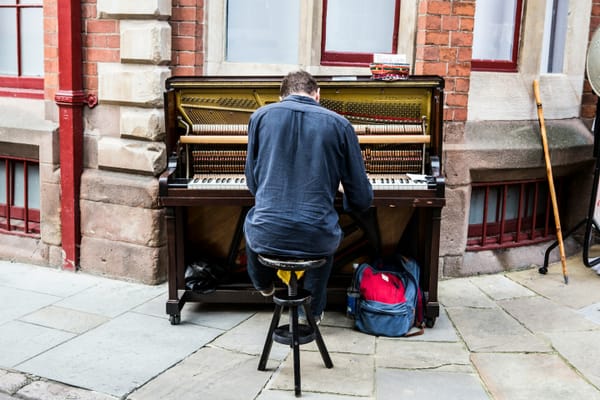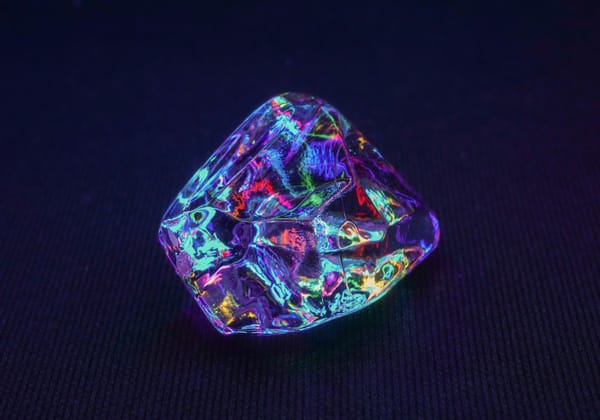Life, Love and László
Was it the sparkle in his eyes or the thick curling moustache which captured their gazes? Perhaps a combination of these and other attributes? Moths to a flame, he was soon charming the middle-aged and elderly tourists stepping from their river cruise boat. It had berthed near the nineteenth century Chain Bridge on the Pest side of the Danube River in Budapest. The city of intrigue deserved its moniker, Queen of the Danube, and eccentrics like László Molnár added to its rich fabric.
“Beautiful roses for beautiful ladeeez,” László announced in clipped English. His rehearsed lines were exotically underpinned by a thick Hungarian accent.
“Beautiful roses. Welcome to Budapest, beautiful ladies,” he cooed seductively while proffering his vase of single stem roses.
With a flourish László bowed to the tourists, briefly removing and replacing his pork pie hat. Thick, dark spectacle frames couldn’t conceal the magnetic grin set on his face as a rictus. When he spoke, the bushy moustache moved up and down dramatically as though a small wild animal was attacking the base of his nose. A busy, multi-patterned shirt clashed jarringly with his necktie yet it added to the spectacle of seventy year old László as he charmed the attentive elderly tourists. Bees to his nectar, he quickly sold roses to half a dozen cooing Americans. Each sale was accompanied by a kiss on the back of a hand and a liberal dose of glowing adjectives describing the beauty of each buyer. Despite being not entirely genetically blessed, confidence and European charm oozed from his pores.
Lászlo Molnár loved Budapest, the adulation of the tourists, and the multiple selfies he featured in on their smartphones. He loved life, he loved women, he loved to be charming. It wasn’t difficult, they were innate qualities; his personality. Buoyed with the warmth of a few swigs of the bitter Hungarian liquor, Unicum, László schmoozed a small group of rose buyers with answers to questions as he suggested sights to visit in his city.
“I am born in Pest, not far from here. Over there, on other side of river, is Buda and hills and the castle. My wife born near Buda Castle.”
He paused, lowered the pitch of his voice, and added, “But I am widower now.”
His comment was received with hastily furrowed brows and sympathetic sighs of condolence, before he continued.
“You must promenade along the Vaciu towards nineteenth century Central Market. Lots of shopping, very beautiful fashions for beautiful ladeez,” he purred.
A grandmother from Miami, Florida inquired why the Danube appeared brown, not blue.
László replied, “Only blue in Johann Strauss waltzes. Ha, what would he know? He was Austrian.”
He winked knowingly towards her and continued, “You know, we have beautiful music from Hungary. Famous composers. You know of Bartok? Or Franz Listz? Or Kodaly?”
“Are they popstars?” she inquired sweetly. László merely smiled.
Excusing themselves, the group of excited American ladies disappeared down the Vaciu. The whiff of high-end shops had piqued their interest. László glanced at his watch and turned to walk along the bank of the Danube towards his apartment, his pockets stuffed with Hungarian Forints and US greenbacks. He was buzzing. Buzzing with the residue of adrenalin accumulated from having affected flirtatiousness all morning. But he wanted to check the welfare of his wheelchair-bound wife, Mariska. He would also prepare a lunch for the wife who was supposedly deceased a few minutes earlier.
The acute pain in his chest struck without warning. In an instant, his heart was being compressed through a mangle. Concerned pedestrians congregating around the crumpled form of this eccentric man could never know that his fatal heart attack was virtually instantaneous. For a brief moment László Molnár was surrounded by dazzling light. Then he was spiralling down a long tubular slide, the type found in children’s playgrounds. Through transparent walls, he viewed fascinating vignettes and brief video clips of his life as it rewound and he became unlived. It was a pleasant few moments, devoid of any fear.
He relived his arrest and hardline questioning by Hungarian authorities seven years earlier. His years of investigative journalism had raised too many prickly questions. László’s life rewound briskly through decades of daily life and work in Budapest. Then he was unmarrying the beautiful Mariska and pursuing her as a lover. He glimpsed childhood holidays in the hills of Buda. Through a toddler’s uncomprehending eyes he observed his father being unshot by Russian soldiers in 1956 before springing back up from the bloodied pavement. His father then resumed demonstrating angrily against the communist regime during the Hungarian Revolution. Finally, the slide ceased as he was unborn and disappeared feet-first into a birth canal to reside briefly inside the warmth and security of a sac of amniotic fluid.
But his essence, the spirit of László Molnár, wasn’t extinguished; it was randomly reassigned to a baby girl born in 1954 near the castle of Buda. Her parents named her Mariska Kovács. Surrounded by love throughout her childhood, at the age of 21 Mariska fell for the charms of an eccentric young man named László. And Einstein’s theory, that time is nonlinear, is borne out by Laszlo’s serendipitous marriage to himself in 1975.


